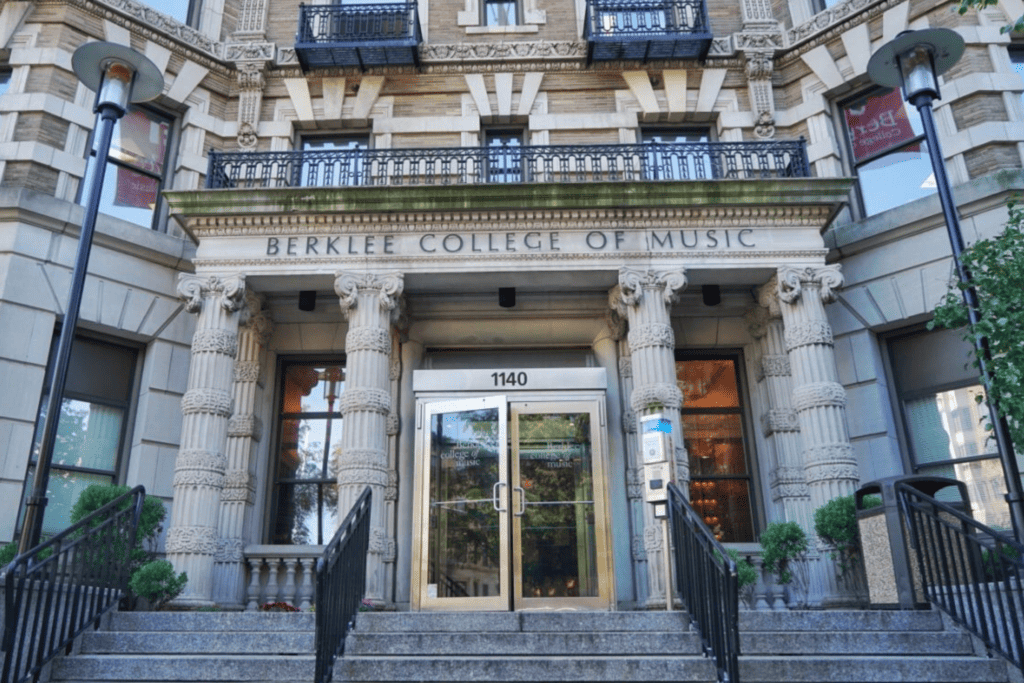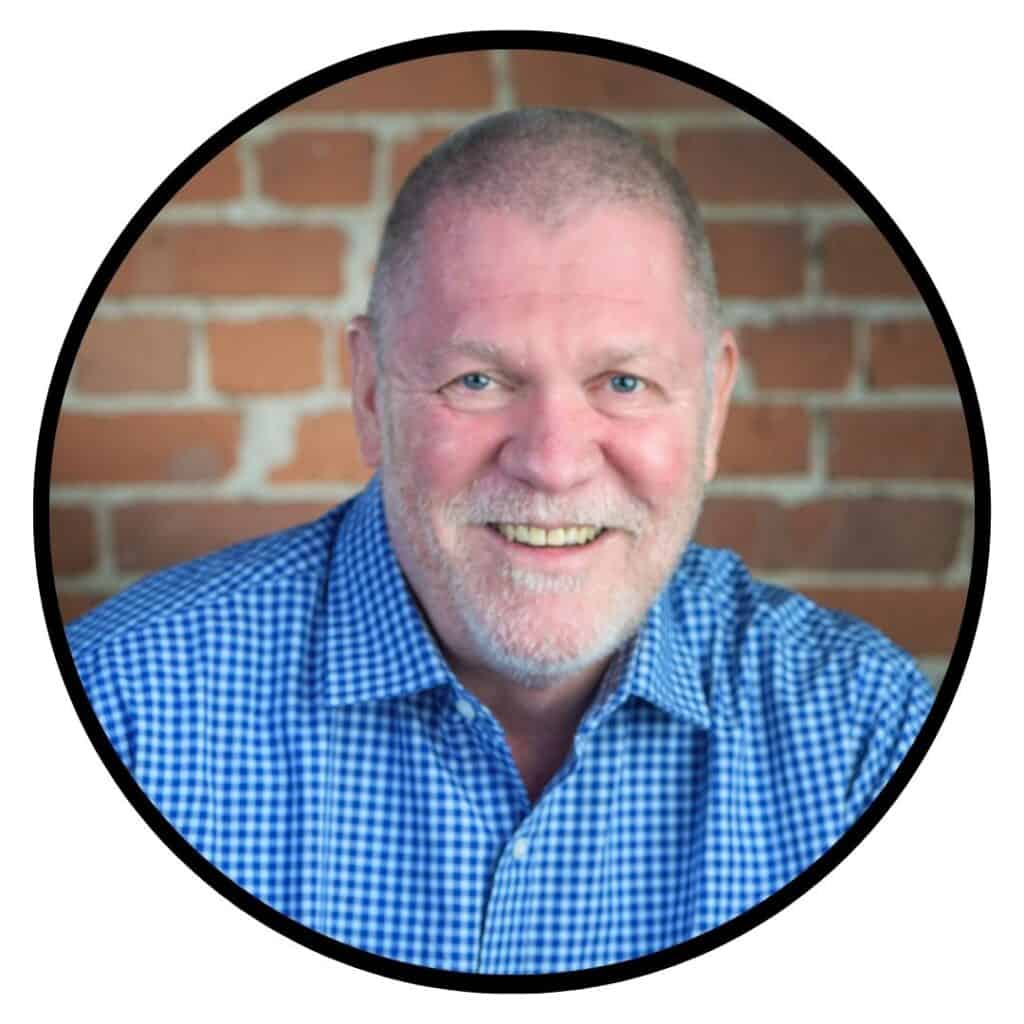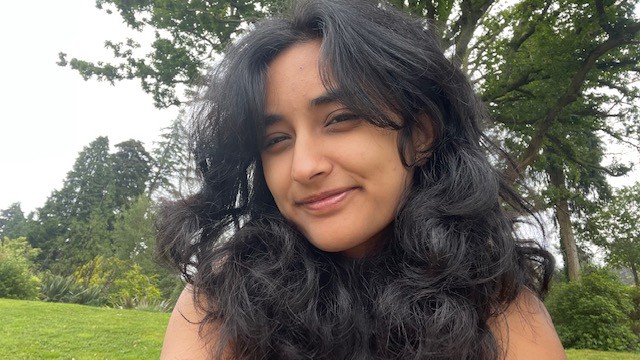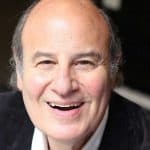Interview by Dr. David Fish

In this post, Inside Music School’s David Fish interviews Tanisha Lokwani who is in her second semester at Berklee College of Music in Boston, MA. She originally hails from Bombay, India, but lived in Dubai, United Arab Emirates for most of her life. She came to Berklee planning to pursue a double major in Music Production and Engineering and Film Scoring with a minor in musical theater production.
David Fish: Could you talk about how you started in music and where you were as a musician when you first considered studying in the United States”
Tanisha Lokwani: I got into music when I was eight or nine years old and started out playing classical piano. I later moved on to singing, writing, and producing my own songs. Berklee had been the top choice for me since I was in 10th grade. I’d watch YouTube clips of various Berklee ensembles performing—in particular, the Indian music ensemble. I ended up applying to some of the top universities in America, but decided that Berklee would be the best place for me.
DF: What other schools interested you?
TL: I considered NYU, the University of Michigan, and a couple universities in California.
DF: None of these schools are in your part of the world. Was your family supportive of you studying overseas?
TL: Not at first, but it wasn’t the overseas part. They would have let me go to study law. For them, college is an investment in my happiness and to help me learn how to make my way in the industry and the world. On every investment, you need some kind of return, right? You need to be able to find a job after college, and that’s not guaranteed in the music industry. At the end of the day—like any parents—mine just wanted me to be happy and to flourish with all these new people in the environment that I’m constantly creating. Now, they have no regrets.
DF: That’s wonderful to hear. For other families of students from outside the United States, we hope they’ll have a similar experience if they encounter reluctance from their families.
TL: I’m sure many foreign students go through this. You want your parents to realize that this is the only way you will be happy. If you’ve come this far, why not go all the way with it?
DF: Could you talk about your application and the audition experience? Did you complete that process with many schools?
TL: I applied to 16 schools, but after I was accepted at Berklee, I was super happy and skipped over the other schools. The application process when I applied was all virtual. Most schools required a pre-screen of videos of you singing, like a portfolio with your application. I was getting rejected at some of my backup schools in the Midwest and southern parts of America. It was probably nothing, just a pattern I noticed. The schools in California and on the East Coast accepted my pre-screens a little more readily. I’ve read that some schools have a quota of foreign students that they fill and when they meet it, they don’t accept any more.
DF: That’s interesting and something other students should hear about.
TL: Some universities that didn’t have a lot of foreign students applying would give those in another part of the world an audition at 3:00 A.M. in the student’s local time. That was a minor inconvenience to me. I just had to wake up earlier, warm up a bit, and then go for it. It seemed like something some schools hadn’t thought about, but Berklee, NYU, and UCLA had.
DF: So foreign students should be prepared to do a live audition at an odd time?
TL: Yeah. Also, I thought I’d be happier in a place where I could see people from different cultures. In places like Chicago, Boston, and New York, there’s a melting pot of culture and that was really important for me. A lot of foreign students want to be surrounded by people that they understand and who understand them. So that’s something to look at.
DF: Can you talk about the challenges you faced in getting your student visa?
TL: Once you understand the process, it’s fairly straightforward, but understanding it at first can be a little tricky. If your country has a U.S. embassy, you get a stamp on your visa there. But I have a friend who needed to go from Iran to my country—the United Arab Emirates—to get a visa for the U.S.
DF: What did you do in preparation to come here?
TL: Around the end of January of the year when I found I’d been accepted, all of a sudden my whole world changed. I had to get a I-20 form to apply for my visa. I also needed new clothes, bedsheets and covers, and books. I printed out pictures for my wall and got one item from everybody in my family and friends, little things to take with me to remind me of home. My brother, who is nine years old, gave me pictures of himself so I wouldn’t forget what he looks like. When I went back for winter break, he gave me a rock he collected on a beach. I made a necklace with it. All the preparation kept going until I landed in Boston. Then I thought: Finally, I’m here!
DF: Where did you start once you got to Berklee?
TL: I met the roommate that I’d been talking to on the internet for so long. She’s from California and is one my closest friends at Berklee. I am in a triple room with her and another girl. I had come from a place where I was the only person in my entire graduating class who was doing anything remotely artistic. Then I got here and everybody’s doing music! All the friends you make here are incredibly talented individuals. Some have written musicals, some have scored films. It’s amazing, but also overwhelming if you haven’t done all of those things.
DF: So it sounds like a combination of inspiring and a little bit intimidating.
TL: It is a little intimidating to be here, for sure. But I’m going to work as hard as I possibly can in these four years and create a career for myself. I get up in the morning and my first thought is “I get to do this!”
DF: Have you been getting everything that you hoped for academically in your classes, lessons, and so forth?
TL: The academics at Berklee are different from what I imagined. There’s a lot of core music. The stuff I enjoy, I enjoy to the fullest. Other stuff is tedious, but I understand its value.
DF: Berklee has a lot of international students. Have you met anyone who shares your cultural background?
TL: I haven’t met a lot of people from Dubai, but have met lots from India. There’s a really lovely community here. Some of our residence assistants are Indian and they host things like Bollywood food nights. So I’m never alone. There’s a sense of community.

DF: Have you had a chance to explore the city of Boston?
TL: I’ve explored it a lot. My favorite thing to do on a weekend is to walk. Boston is such a wonderful city for students far from home because there are so many of us here. The people on the streets say things like “I love your outfit,” or “Have a great day.” That’s so lovely.
DF: Do you have any advice for other international students who are thinking of studying in the United States?
TL: I do. It is a really challenging process to come here, but so rewarding if this is what you want. It’s easy to get lost in the application process and forget that you’re applying because you want to study music and do it for the rest of your professional life. I would say that I truly love what I’m doing here. I lost myself for a month or so when I was applying because of processes and rejections. There were countless times I had to rerecord a song because it wasn’t good enough. Instead of bringing yourself down over one rejection, you have to know that somewhere, somehow, it will work out. Just keep your head up.
DF: Well, everybody in the music industry will have to face rejection. This is the first step. For most in the industry, “no” is the most common word that they will hear. So you can’t let that deter you.
TL: If you let rejection deter you, then this life may not be for you. No one should give up because someone said no to them if this is what they want to do. If you’re passionate enough and hard-working, good things will happen. You just got to keep going.
About the Author

Dr. David Lee Fish, Ph.D., founded and continues to direct the degree concentration in popular music as a tenured professor at Catawba College in Salisbury, North Carolina. In that role, he has gained expertise in a range of subjects, including music business, technology, and theory. He also co-founded and is a past president of the Association for Popular Music Education, the leading professional organization for educators in that field. His participation has helped him forge relationships with fellow faculty of popular music across the country and intimate knowledge of their programs.
Contact Us
Did you find this blog helpful? Do you picture yourself in a music career? If the answer to that is a “yes”, your next step is simple. Contact insidemusicschools.com and allow our team of industry insiders to guide you toward your goal of being a professional in the music industry. Through expert counseling and real world experience, we will make sure you are prepared for the journey
Founder & President at Inside Music Schools | Insidemusicschools.com
Head of admissions and faculty member at Berklee College of Music for 40 years, Steve Lipman and our team at Inside Music Schools speak music as their primary language. We approach each client contact with open eyes, ears, and minds. As the country’s premier music school consultant, he has advised students from the United States, Canada, the U.K., India, Singapore, Dubai, China, Australia, Turkey, Colombia, Argentina, Brazil, Japan, Israel, Italy, Russia and elsewhere.


